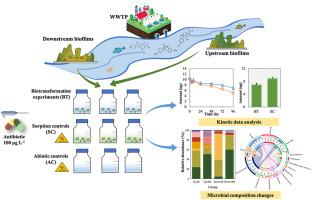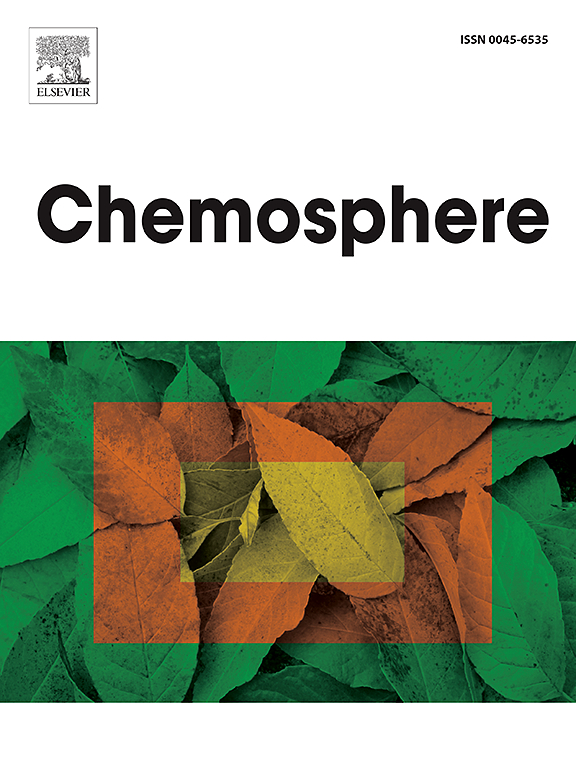接收经处理废水的溪流中生物膜的抗生素生物转化潜力:生物降解机制与细菌群落结构。
IF 8.1
2区 环境科学与生态学
Q1 ENVIRONMENTAL SCIENCES
引用次数: 0
摘要
抗生素是一种分布广泛且有效的抗菌剂。人类医疗和家畜养殖是水生生态系统中抗生素的主要来源,可能会破坏作为溪流食物网基础的生物膜。在本研究中,我们利用在污水处理厂出水口上游和下游溪流中培养的生物膜进行了抗生素生物转化实验,以区分抗生素在生物膜中的不同归宿过程。结果发现,溪流生物膜主要对特定的磺胺类抗生素具有生物转化潜力。通过 16S rDNA 测序,发现黄杆菌和镝杆菌与生物膜对抗生素的生物转化有关。此外,废水处理后释放的微生物融入了下游生物膜群落,从而提高了下游生物膜群落与上游生物膜相比的生物转化潜力。这些发现丰富了人们对溪流生物膜生物转化微污染物的认识,从而促进了基于生物膜的监测技术的发展。本文章由计算机程序翻译,如有差异,请以英文原文为准。

Antibiotic biotransformation potential of biofilms in streams receiving treated wastewater effluent: Biodegradation mechanism and bacterial community structure
Antibiotics are a widely distributed and effective antibacterial agents. Human medical treatment and livestock aquaculture are major sources of antibiotics in aquatic ecosystems, potentially damaging the biofilms that are the foundation of stream food webs. In this study, we conducted antibiotic biotransformation experiments using biofilms cultured in streams upstream and downstream of a wastewater treatment plant outlet to distinguish different fate processes of antibiotics in biofilms. It was found that stream biofilms have biotransformation potential mainly for specific sulfonamide antibiotics. Flavobacterium and Dyadobacter were identified to be associated with biofilm biotransformation of antibiotics by 16S rDNA sequencing. Besides, microorganisms released from treated wastewater integrated into downstream biofilm communities, thereby enhancing the biotransformation potential of downstream biofilm communities compared to upstream biofilm. These findings enriched the understanding of the biotransformation of micropollutants by stream biofilms, and to thus promote the development of biofilm-based monitoring technologies.
求助全文
通过发布文献求助,成功后即可免费获取论文全文。
去求助
来源期刊

Chemosphere
环境科学-环境科学
CiteScore
15.80
自引率
8.00%
发文量
4975
审稿时长
3.4 months
期刊介绍:
Chemosphere, being an international multidisciplinary journal, is dedicated to publishing original communications and review articles on chemicals in the environment. The scope covers a wide range of topics, including the identification, quantification, behavior, fate, toxicology, treatment, and remediation of chemicals in the bio-, hydro-, litho-, and atmosphere, ensuring the broad dissemination of research in this field.
 求助内容:
求助内容: 应助结果提醒方式:
应助结果提醒方式:


